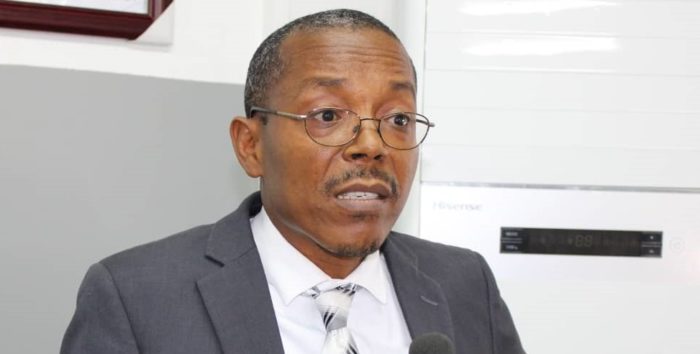They made the recommendations at the end of the two-day high-level round table discussions organized by the Ministry of Lands and Country Planning, with support from the Food and Agriculture Organisation (FAO) of the United Nations, the World Bank, the United Nations Development Program and other donors.
Some of the MPs who attended included Hon. Neneh Lebbie from Bo District, Hon. Quinton Salia Konneh from Kailahun District, Hon. Josephine Makieu from Kenema District and Hon. Paramount Chief Sahr Youngai Kontangay Mbriwa II of Fiama Chiefdom, Kono District.
They also condemned the suggestion of removing Paramount Chiefs as custodians of the land which they asserted would erode their powers and would be disastrous, that the practice is historical and part of our tradition and culture, that children should be sensitized about patriotism at an early age, that they (participants) are satisfied with the work of the legal consultant who should ensure that all the conflicting laws in the country relating to land issues are referenced and harmonized, that even after the workshop they should continue to send their comments, questions and observations to the organizers and that more consultations should be held.
Among others, they also recommended that all land cases be resolved, questioned how Commissioners will be appointed to the Land Commission/Committees that will be established, that youths who are in the majority in the country be appointed to the Land Commission/Committees, that the position of Paramount Chiefs as custodians of land upcountry is ceremonial and should remain so and that Sierra Leone operates both traditional and political systems that should be maintained reiterating that when approved the new Land Policy would regulate and sanitize land administration.
According to participants, when approved, the new Land Policy would address all the lapses in land management, administration and disputes with more democratic decisions by the majority as at the moment, the process is problematic underscoring that if not properly management, land issues would cause the next civil war in the country, that some rules relating to land issues are not applicable in some parts of the country, that some Land Committees established in some parts of the country are responsible for land grabbing and sale, the reason they should not be in the new Lands Committee to be established and that customary laws are part of the laws of the country.
The MPs and CSOs also observed that some Tribal Authorities abuse their office and promised to thoroughly scrutinize the Bill and in the process do justice to it, reiterated that the Bill is very important, pledged to popularize it when approved but observed that Sierra Leone is good at enacting laws but poor in implementation.
Earlier welcoming the over 50 participants, Mr. Jobo Samba, Coordinator of the National Land Policy in the Ministry of Lands underscored the high level of cooperation between the Ministry and donors, that they have held discussions with various stakeholders on the issue nationwide stressing that the Bill has attracted a lot of attention and collaboration.
The event was primarily for the Female Parliamentary Caucus and the Parliamentary Committee on Local Government in addition to Members of Parliament from various Committees and CSOs on land right issues like NAMATI, Green Scenery and Transparency International to deepen specific areas relating to Oversight Committees like Local Government, gender and women’s empowerment.
The Model Land Commission Bill 2020 is to make provision for the protection of land rights under customary law in the provinces, elimination of discrimination under customary tenure, management and administration of customary land, responsible investment in land under customary tenure and for connected matters.
In her PowerPoint presentation, the legal consultant, madam Eleanor Thompson enlightened that the interpretation and enforcement of the Bill shall be guided by the provisions of and the principles contained in the National Land Policy 2015 including but not limited to non-discrimination, respect for human dignity, gender equality, equity and justice and accountability.
She articulated that land issues cuts across all sectors and recalled that the process started in 2009 culminating in the Land Policy to among others improve land tenure administration, responsible investments and women’s rights in the country.
According to madam Thompson, there are two types of land tenure systems in the country, that consultations were held nationwide on the reforms, that historically women have been discriminated against, that women are the largest land users but lamented that they are left out in the decision-making process.
The legal consultant also talked about the structure of the proposed Land Commission, that the Board should be made up of institutions and not individuals, that 50% of members of the Board must be women and went on to state that District Land Commissions and Chiefdom Land Committees would also be formed.
Other topics she highlighted were Independence of the Commission, Functions of the Board, Tenure of Members’ Representatives on the Board, Meetings of the Board and Disclosure of Interest.
Mr. Sokinta Conteh of NAMATI responded to questions virtually while the question and answer session climaxed the well-attended and interactive event.
Mr Joseph Rahall of Green Scenery chaired the second day of the discussions.












